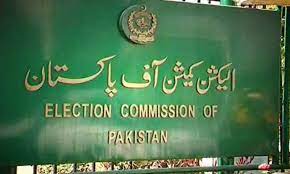Dilemma of e-Voting
Both government and opposition locked horns over the use of EVMs in the next general elections
By Muhammad
Ragheeb-ud-din
ragheeb40@gmail.com
To use
electronic voting or not that is the question. This customized version of
Shakespeare’s famous line from his play Hamlet best sums up the current
Pakistani political landscape where the government’s decision to use electronic
voting in the upcoming general elections is being heatedly debated.
The PTI
government firmly believes that e-voting is the right way forward to ensure
that elections are conducted in a free, transparent and efficient manner. On
the other hand, both the opposition and the Election Commission of Pakistan
believe that such a move in short period of time will lead to an election
marred with irregularities and fraud. Such a drastic change in the system, they
argue, requires a more planned and phased approach in which the electronic voting,
also known as an e-Voting system, is gradually introduced over a longer period
of time and first tested in by-elections and local body elections before being
utilized at the national level.
The PTI government on the other hand has argued that enough time has already been given to all concerned parties to discuss how best to implement the e-Voting process and that any calls for delay in its full implementation are a delaying tactic rather than a genuine concern.
The PTI government also points to the utilization
of this system in several countries such as Switzerland, India and France as
case studies about how this system is effective as well.
There are
several benefits to electronic voting which have led to its adoption in the
electoral process in various countries. Electronic voting eases the electoral
process since electronic votes can be sent from any location.
You no
longer have to make that tedious walk to the polling station and spend hours in
some cases in extreme weather to cast your vote or face the threat of violence
in certain areas such as Baluchistan or EX-FATA.
Furthermore citizens residing abroad which in
Pakistan’s case is a huge number can also easily partake in the electoral
process. This can potentially increase voter participation especially among the
upper middle class of the country as well as other groups that are not zealous
about taking part in the political process.
The E-Voting process also reduces the number of invalid votes which are caused by errors made on the ballot paper. Voters in the normal voting system make mistakes when filling out and submitting ballots. Rejected votes can end up having serious effects on both the overall as well as individual election results.
This was
apparent in the 2018 general elections where the number of rejected votes was
greater than the victory margin in at least 30 constituencies. In these
constituencies, lesser number of rejected votes could have potentially changed
the winner in the election altogether. Furthermore the argument that e-Voting
may not be fully secure and susceptible to tampering can also be countered with
the fact that no system is 100% fool proof.
Even in
advanced democracies such as Switzerland with none of the problems that our
democracy faces there have been instances of electoral fraud. In short some
glitches will always remain no matter what is the system but that shouldn’t be
an impediment to the e-Voting system.
Another
concern that was raised was the cost of holding such an election since the
estimated cost of using EVMs in Switzerland in 2019 was around USD 736 million
which if transposed on a country like Pakistan, will simply be unbearable.
To address
all these concerns the government claims to have produced the most unique
electronic voting machines that cannot be hacked or tampered with since they
would have no operating system nor would they be connected to the internet.
This would ensure they cannot be infected by
malware. The government also claims that overseas voters can vote from the
countries of their residence through i-voting which seems contradictory since
the machines are not supposed to be connected to the internet in the first
place nor have any operating system. Nevertheless it has assured the public
that this will still be possible.
It is also to be noted that without internet
connectivity all the benefits of ease of accessibility and insurance of lower
bogus votes is also negated since they are only possible with such features
being present in the EVMs but nonetheless the government claims this is
possible somehow.
It has also claimed that thanks to the
ingenuity of our experts, as well as the simplicity yet capability of our EVMs,
we can produce them for 65,000 Pakistani rupees only and hence the concern
raised with regards to the cost of holding such an election is also addressed.
The machine itself was developed in a record time of 12 weeks which shows the
capability of the team behind its creation.
Concerns
about ability to produce enough machines and train staff to be able to use them
in such large numbers were also raised but it was assured that despite most of
the election staff not being able to prevent so much bogus votes from getting
polled after 74 years of a similar process they will in 2 years be trained
enough to operate the EVMs smoothly.
Indeed it would appear that the issues of
cyber security that led to EVM usage being abandoned in Finland, Germany and
other countries have been resolved by Pakistan by making sure the machines
aren’t sophisticated yet at the same time smart enough to defend against any
cyber threats.
Given that
it all becomes reality by 2023, Pakistan will become the first country in the
world with such an advanced indigenously developed e-Voting system to have its
cake and eat it to. Till than let’s keep our fingers crossed and expect the
better from our political wizards.
Muhammad
Ragheeb-ud-din













Post a Comment